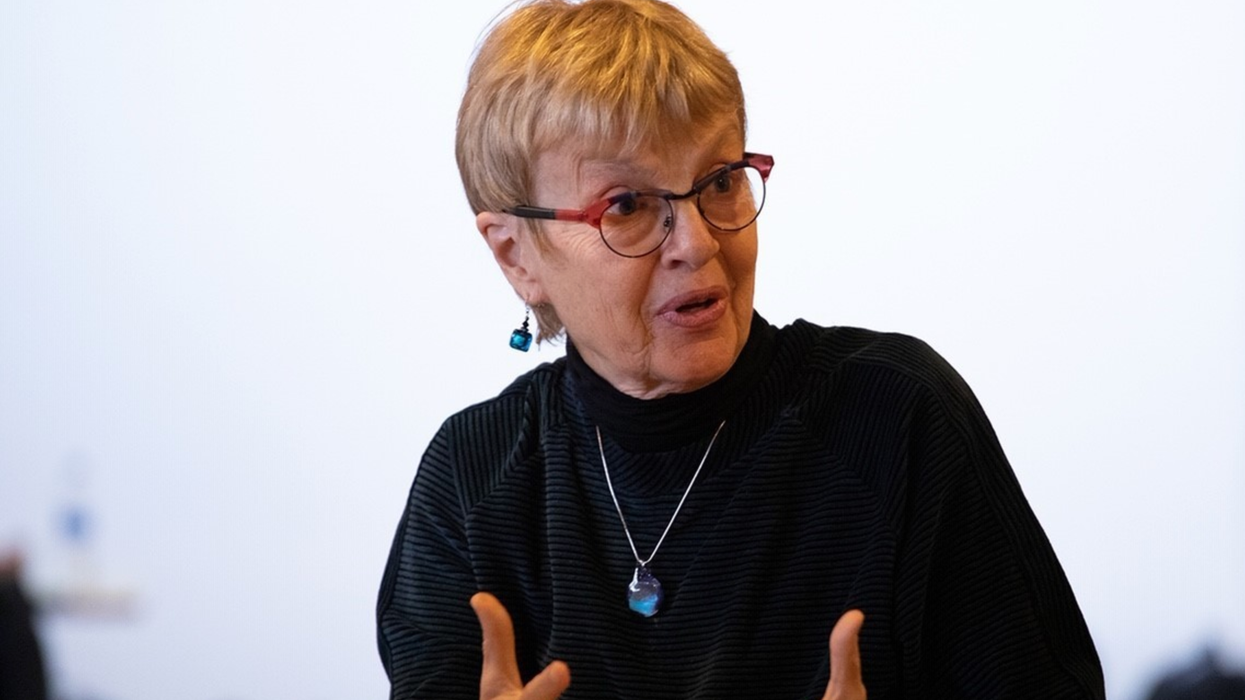I’ve known Dr. Carolyn Lukensmeyer for over a decade, first meeting her about a decade ago. Dr. Lukensmeyer is a nationally renowned expert in deliberative democracy, a former executive director emerita of the National Institute for Civil Discourse, and a member of the American Academy of Arts & Sciences’ Commission on the Practice of Democratic Citizenship.
On the weekend of her 80th birthday, former colleagues, clients, and friends offered a look at Dr. Lukensmeyer’s extraordinary commitment to “of, by, and for the peoples,” from her earlier days in Iowa and Ohio to the present day.
Her credentials are impressive indeed, but what I admire most about Dr. Lukensmeyer as a friend and a colleague is her life's commitment to our nation and to healing the seemingly intractable divides that separate us people.
Dr. Lukensmeyer spoke several years ago at the Democracy Awards, a project of the Congressional Management Foundation that annually honors the best in congressional non-legislative achievement. These nonpartisan awards celebrate Members of Congress and their staff who exemplify outstanding public service, operational excellence, and innovative practices that strengthen our democracy.
I remember that speech well. The Democracy Awards honored Congressional giants who passed away that year: Senator John McCain and Representative John Dingell. In honoring these great men, she spoke of spirit and reminded us all of the “responsibility of putting country above party.”
Dr. Lukensmeyer quoted John Dingel as he was talking about all the hurdles he had experienced as a sponsor of major legislation:
“All of these challenges were addressed by Congress. Maybe not as fast as we wanted or as perfectly as we’d hoped, the work is certainly not finished, but we’ve made progress. In every case, from the passage of Medicare to the passage of civil rights, we did it with the support of Democrats and Republicans who considered themselves, first and foremost, Americans.” Dr. Lukensmeyer went on to say, “That is a message that needs to be taken to heart in the halls of Congress today,” and “Our responsibilities are important, vitally important to the success of our republic. Our arcane rules and customs are deliberately intended to require broad cooperation in order to function well. The most revered members of this institution accepted the necessity of compromise in order to make incremental progress in solving America’s problems and to defend her from her adversaries.”
Dr. Lukensmeyer has spoken at many important events over the years, always with a consistent message of finding common ground. In 2019, she was the first keynote speaker for a thought-provoking lecture entitled, “The Power of In/Civility: Engaging in Challenging Conversations Across the University, Community, Nation.” Dr. Lukensmeyer encouraged the audience to, no matter how hard, find common ground with someone they disagree with.
If democracy is going to work, she explained, it has to be a conversation — but the quality of that conversation really matters. “How is it that our public and political discourse has become so degraded? People who are researching this and talk about it a lot say this is something that has been building for decades,” Dr. Lukensmeyer said. “It is also true that the presidential election cycle in 2016, both primary and general, really took it to a different level.”
During her keynote, Dr. Lukensmeyer showed a video clip of two people on the opposite ends of the political spectrum who became unlikely friends — How did this happen? One simply invited the other out for coffee, and they discovered that they had a lot more in common than either of them had first thought. “The message is, we don’t have to be enemies when we’re on the opposite side of something,” said Dr. Lukensmeyer. “We just have to learn to see each other as human beings.”
Dr. Lukensmeyer stressed that the issue of civility and incivility greatly matters. “We are absolutely bombarded on a daily basis with profound examples on incivility, disrespect, dehumanizing — and people understand that there’s something about civility that really matters,” she told the diverse group. She went on to say that Americans are living at a distance from one another and making moral judgements about one another because of their differing political views.
For as long as I have known Dr. Lukensmeyer, one of her key beliefs is that democracy thrives when people are actively involved in decision-making. Through her work with AmericaSpeaks that she founded, she emphasized that "citizen voice must be linked with governance" to ensure that leaders are truly representing the people.
She has always highlighted the dangers of political dysfunction, stating that "we must restore our democracy to reflect the intended vision of our Founding Fathers". In many discussions over the years, Dr. Lukensmeyer has been unwavering in her belief in the need for innovative political engagement to heal divides and "chart a collective path forward.”
Ultimately, Dr. Lukensmeyer’s faith in democracy rests with her faith in “We the People.” Many years ago, she said something to me that still resonates with me to this day.
“If, in fact, we are going to do something about this,” she said, “it’s going to come from ‘we the people.’”
David Nevins is co-publisher of The Fulcrum and co-founder and board chairman of the Bridge Alliance Education Fund.




















Trump & Hegseth gave Mark Kelly a huge 2028 gift